The college graduates crossing the stage this month are the first to completely witness higher education in a post-COVID world. These young adults are quintessentially “Gen Z,” a generation of people that have been uniquely impacted in their youth by technology, political challenges, and this pandemic. Now, they’re entering the workforce. Will their career experiences be as unique as their upbringing, or will it stand out too?
Does Gen Z Want to Work?
First, let’s tackle some misconceptions about this youngest working generation. As every generation enters the workforce, they are bound to be met by judgement from their older colleagues. The most classic criticism is that these young workers are “lazy” or “don’t want to work,” and Gen Z has been hearing plenty of that chatter online. But these young workers do want to work; in fact, they’re engaged at just slightly lower rates than the generations before them. Additionally, these young workers are focused on their education: Even with the college enrollment rate stagnating in recent years, more young Americans are pursuing higher education compared to years past.
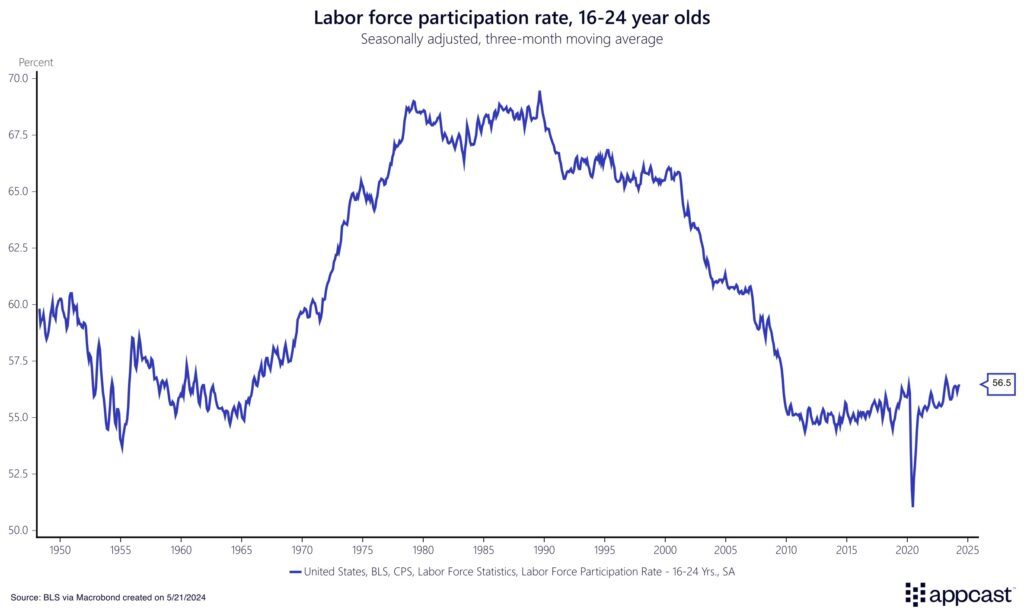
This race for higher education hasn’t always panned out, though: 45% of college graduates are underemployed (or employed in a position that does not require a college degree) even ten years after graduation, according to the Burning Glass Institute. Gen Z does want to work – but graduates are finding positions that do not engage them.
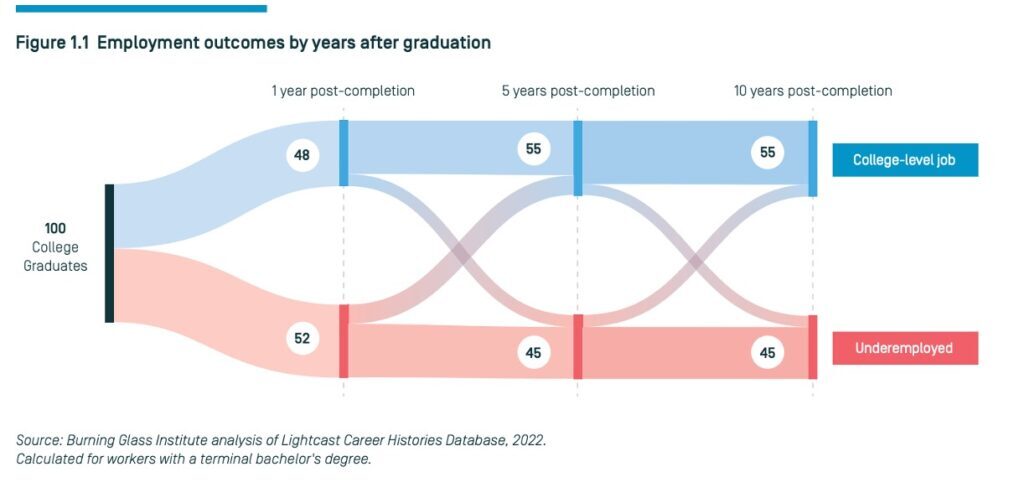
What does the labor market look like for Gen Z?
To understand the current state of the jobs market, let’s travel back in time a bit. As the oldest generation in the workforce, Baby Boomers have lived through several different labor markets, good and bad. When they entered the workforce, the world was a very different place, while the labor market was remarkably similar. In the late 1960s, unemployment rates for prime-age workers were remarkably low, meaning that even young workers could find employment relatively easily. Another similarity is the inflation rate. Right as Boomers were entering the workforce in large swaths, inflation began rising, nearly reaching 6% as the decade’s sun set. In the 1970s, a recession hit, and young Baby Boomers had to deal with rising inflation and unemployment rates.
Gen X stepped onto the scene immediately following the recessionary decade of the 1970s. As they found their first jobs in the early 1980s and through the 1990s, young workers were experiencing a much more thriving labor market than their Baby Boomer peers. Unemployment rates fell to lows not seen in 30 years.
The former youngest of the workforce, Millennials, entered the labor force during the most painful recession and recovery of the modern era. Unemployment skyrocketed in the 2007-2008 period and took nearly a decade to recover. Recent graduates had to compete with older, recently unemployed workers that had far more experience. It was a difficult labor market to exist in as a young worker.
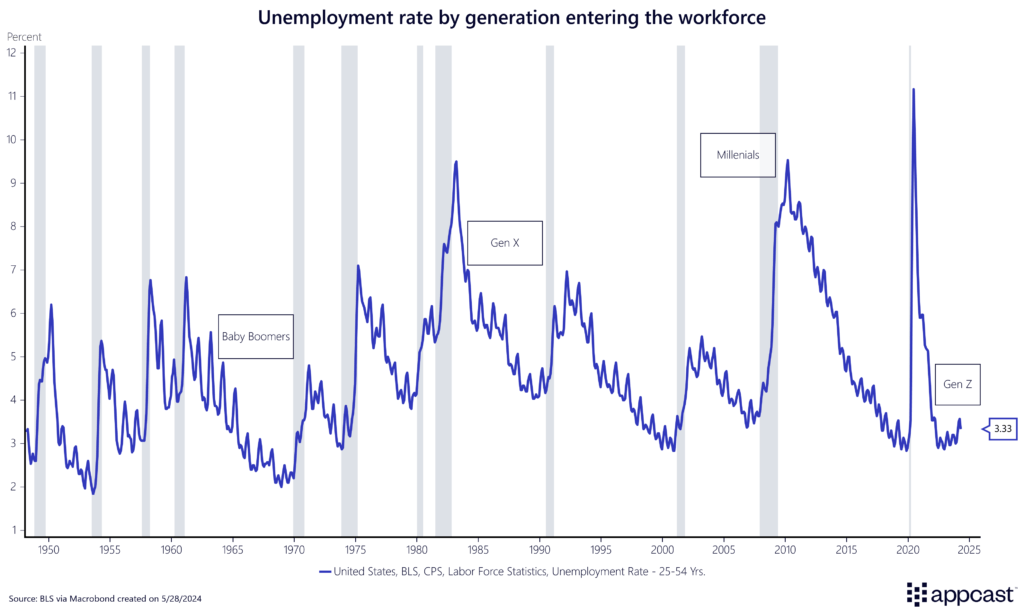
Finally, as we look at today’s labor market, we see that Gen Z exists in one of the most generous job markets of the last 75 years. Unemployment has been enduringly low, now at just 3.9%. Of course, if you look at the unemployment rate for recent college graduates, as the Federal Reserve of New York does, you’ll see a slightly higher value of 4.7%, higher than pre-pandemic norms and higher than it was in the late 1990s (the best labor market). It will always be more difficult for young workers to compete with more experienced workers, even in a strong jobs market like today’s.
In short, compared to other generations, Gen Z has found themselves in a relatively strong labor market, even as they have recently been dealing with inflation and societal turmoil.
What and where are people hiring recent grads?
While the labor market for this year’s group of Gen Z graduates is strong, even workers within their own generation have seen better. In 2022, entry-level job postings were up over 80% from 2019, according to data from Revelio Labs. Over the last two years, the labor market has softened, and the demand for entry level jobs has as well. Now, the number of entry-level job postings is up 25.5% from 2019.
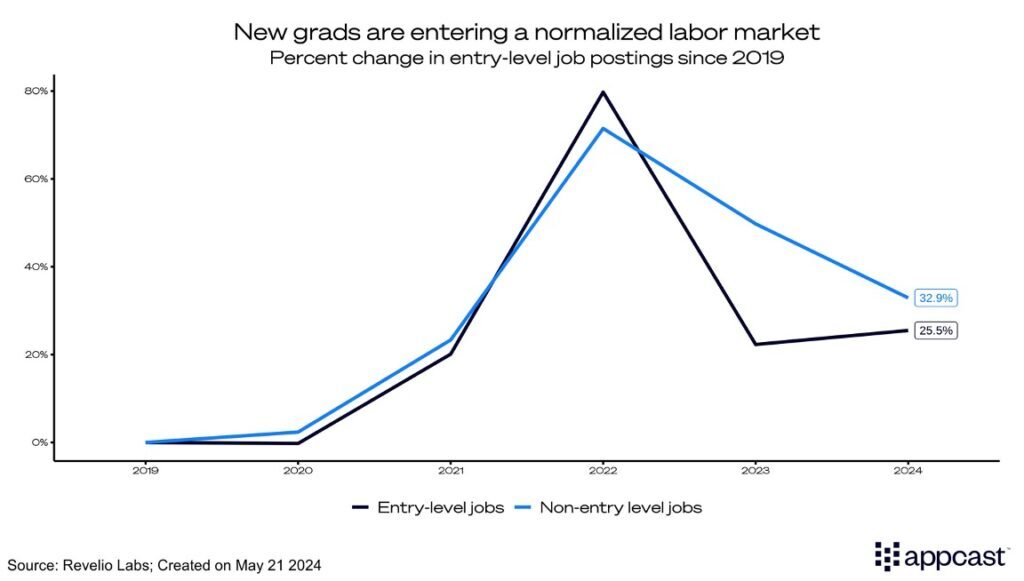
Perhaps, though, the decrease in entry-level positions is tied to the slowdown in the tech industry. Several tech positions, including software engineers, service analysts, and systems engineers all saw declines in the number of entry-level postings in 2024, according to Revelio’s data. It is a more precarious tech market today than it was just last year, thanks to enduringly high interest rates. Additionally, the all-too-familiar tech layoffs of the past two years have flooded the market with experienced professionals, decreasing the need for entry-level hires.
Surprisingly, the number of entry-level nursing roles have also declined, despite the persistent strength of the healthcare sector overall.
On the other hand, there’s been a surprising increase in demand for HR specialists, even as hiring has slowed across the board. Perhaps companies are investing in growing their teams, prepping for a reversal of this downturn.
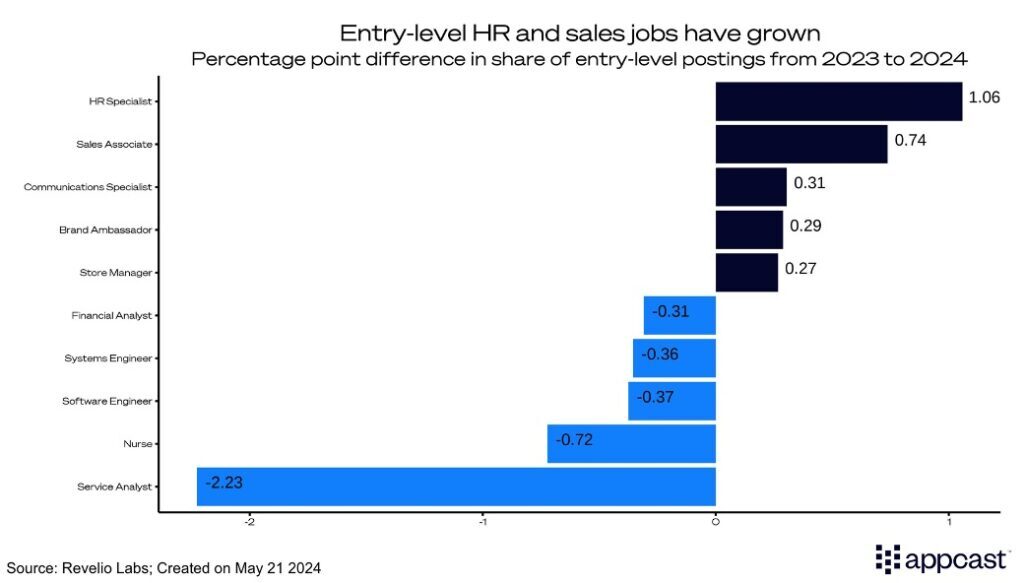
As we constantly say, there is no one labor market. Demand for any given role can fluctuate between industry, across state lines, or month to month. Looking below, we see that the ease of finding an entry-level job shifts depending where in the U.S. a recent college graduate may be looking. In California, for instance, it will be far more difficult, while the South is hiring entry-level workers at a much higher rate than last year. If workers are able, heading south might be the answer to their job search woes.
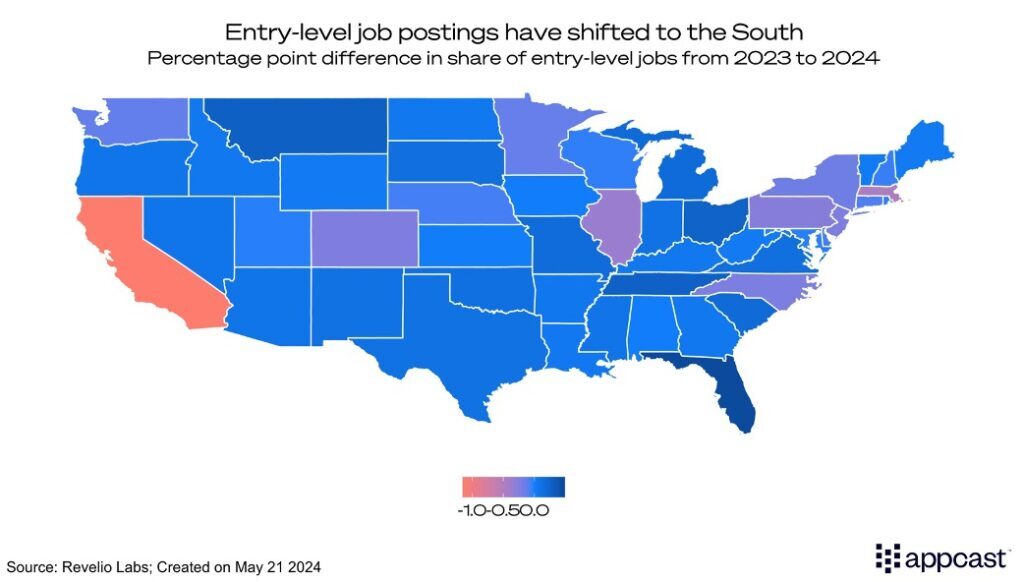
What does this mean for recruiters?
College graduates are moving from their alma maters hallowed halls and into office-building cubicles. Recruiters should know that these workers are a lot like each generation that came before them: Ready to work.
They may be moving into a labor market stronger than those of past generations, but the outlook is less rosy for the youngest set of workers, who are often underemployed. Crucially, Gen Z workers are feeling less engaged in their work compared to other generations. This may stem from an emphasis on work-life balance in recent years, this generation’s penchant for hybrid work, or the general malaise surrounding them as they enter the workforce.
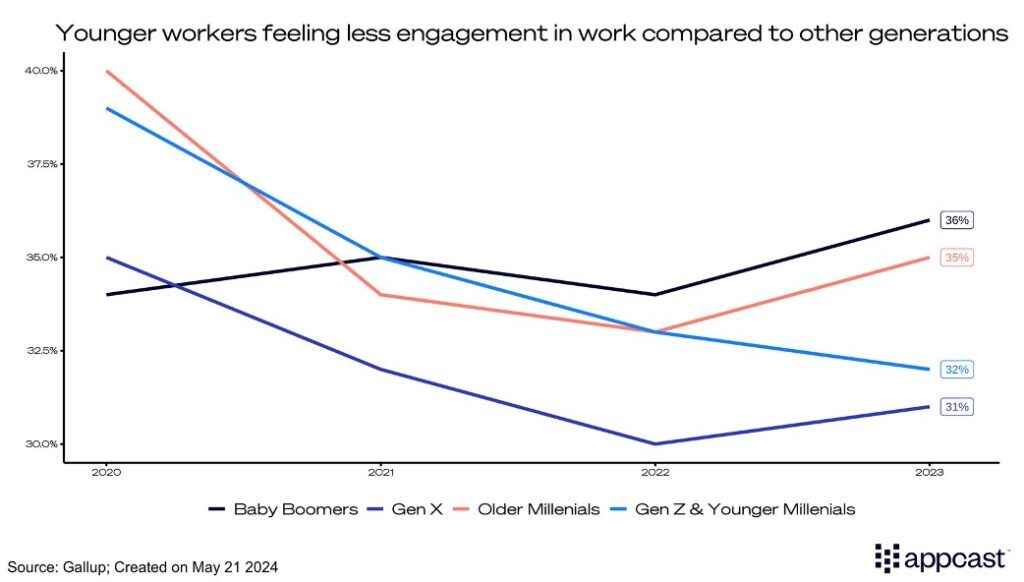
Recruiters should be ready to engage with these recent college grads through honest communication about benefits, wages, and career growth within the company. Remember, these are no longer children, and Gen Z college grads want to be treated as the adults they are.









